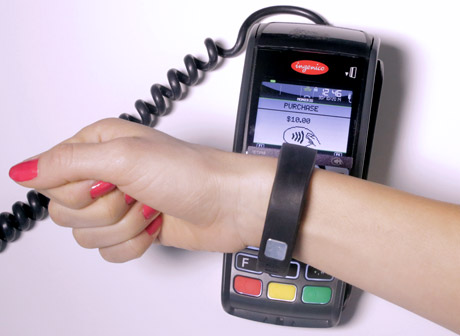Wearable technology is becoming ubiquitous. More and more companies are exploring the benefits with biometric wristbands having one of the strongest selling points.
The future of wristbands is here, and low and behold they’re packed full of technology and wanting to know all about you. Biometric wristbands as they’re formally known are not a new concept however wearable tech has been formally developed over the last few years and is now shaping up into products with a raft of useful applications.
Visa is currently developing secure, biometric payment wristbands.
2016 will see Visa demonstrate their latest innovation in secure payment technology. Amongst the new innovations are keychains, mobile payments and biometric payment wristbands.
A version of silicone based contactless payment wristbands were already trialled in Spain with some success. The biometric versions will be demonstrated at the Mobile World Congress in Barcelona this year. See this link for details.

Example of a silicone payment wristband already in operation
How biometric wristbands are helping with sufferers of autism.
Another exciting use of silicone wristbands is the addition of ‘bio sensors’ which can be used to measure small changes in the wearers physiology. Measuring minor changes in the skin surface temperature and heart rate of the wearer could help transform the everyday life of someone who is autistic.
A team at Boston Northeastern University led by Dr Matthew Goodwin, who is an expert on wearable biometric sensors, are currently working on a wristband that can monitor the heart rate, perspiration, skin surface temperature and the three dimensional movements of the limb it is worn on.
“The autistic children we’re working with can’t tell us what’s going on. They can’t say they have a headache, or ‘it’s too loud in here’ or ‘I don’t like this teacher’,” – Dr Matthew Goodwin – Interdisciplinary Assistant Professor: Bouvé College of Health Sciences.
Autism can be a physically disabling condition and render the sufferer unable to communicate physically or vocally. This can lead to dramatic behavioural changes such as aggression and self-harm.
The biometric wristbands will help to communicate stress levels when the wearer is unable to do so. Scientists predict these wristbands for people with autism could be available within a couple of years.


